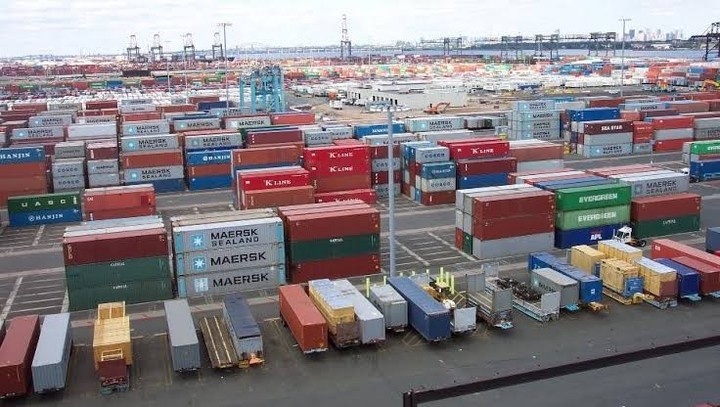Countries like the United States and Russia are turning to Togo’s Port of Lomé instead of using Nigerian ports. This is happening even though Nigeria is working hard to improve and build more ports.
Togo’s port is growing fast because trade between Asia and West Africa is increasing. The Port of Lomé has become one of the busiest container ports in the region.
Big shipping companies, like MSC, are now sending very large container ships to Togo to take advantage of the growing trade. This has helped Lomé become a major shipping hub in West Africa.
Because of these trade benefits, the U.S. is now planning to expand its access to African markets using Togo’s port.
Just last week, the U.S. Embassy in Togo visited the Port of Lomé. The American team, led by Chargé d’Affaires Richard C. Michaels, toured the port and met with its managers to discuss business opportunities for U.S. companies.
The U.S. Embassy said that Lomé’s deep-water port, modern equipment, and ability to handle over 30 million tons of goods every year make it perfect for American businesses. They also mentioned that new developments like a dry port and an industrial zone will make the port even more useful.
This visit came not long after former U.S. President Donald Trump met with five African leaders in Washington to talk about business opportunities, even though U.S. aid to Africa is being reduced.
At the same time, Russia has also strengthened its ties with Togo. Earlier this year, Russia and Togo signed a military deal. Now, Russia has officially approved that agreement.
The deal includes joint military exercises, training, and supplying weapons and equipment. It also covers things like sea navigation, stopping piracy, and hydrographic work.
Some experts believe this deal gives Russia full access to Togo’s important seaport. It will also allow Russian warships to visit the port when needed.
A Russian official said that Togo’s port is the busiest and most advanced in all of Tropical Africa, which makes it very valuable for international powers.
Meanwhile, Nigeria is losing out. The Shipping Association of Nigeria (SAN) has warned that many ships now prefer going to neighboring countries because it is too expensive to operate in Nigerian ports.
According to SAN Chairperson, Boma Alabi, a lot of the goods shipped to nearby countries still end up in Nigerian markets. But because they arrive through other ports, Nigeria misses out on jobs, income, and business benefits.
She also warned that if Nigeria adds more charges, like the proposed new Free On Board (FOB) fees, it will make things worse for the economy. These extra costs could push even more ships away from Nigerian ports.







